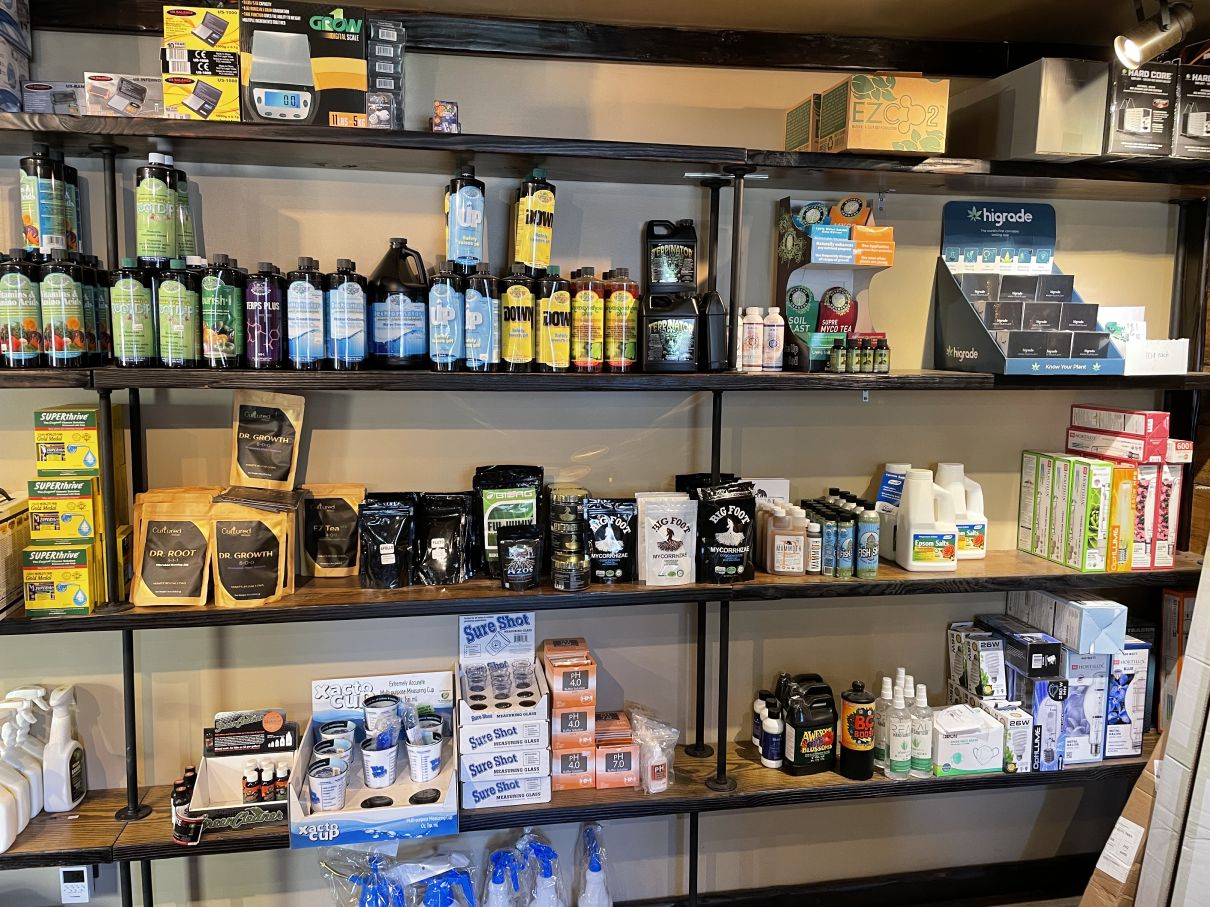Unleash Your Green Thumb: The Indoor Earthworm's Growing Method Demystified
Unleash Your Green Thumb: The Indoor Earthworm's Growing Method Demystified
Blog Article
Enhance Your Gardening Abilities With Hydroponics: Checking Out Advantages
The method of cultivating plants without soil may appear unusual at first, however its benefits are worth taking into consideration. As we dive into the globe of hydroponic horticulture, we reveal a plethora of advantages that not only enhance plant development but likewise give unique chances for people looking to boost their gardening skills.
Advantages of Hydroponic Horticulture
Hydroponic horticulture provides various advantages because of its efficient use of resources and precise control over plant development problems. By providing plants with straight accessibility to nutrients liquified in water, hydroponic systems remove the demand for soil, minimizing water use by up to 90% contrasted to standard soil-based farming. This efficient nutrient shipment approach also permits faster plant growth rates and greater yields, making hydroponic gardening an appealing choice for taking full advantage of minimal area and sources.
Additionally, the regulated atmosphere of hydroponic systems allows growers to optimize variables such as ph, humidity, and temperature degrees, leading to healthier plants with reduced threat of diseases and bugs. This specific control over growing conditions not just promotes much faster and extra constant plant development but also permits year-round cultivation despite external weather.
Faster Plant Growth With Hydroponics
Utilizing innovative nutrient distribution systems, hydroponic gardening facilitates sped up plant growth prices contrasted to standard soil-based farming techniques. In hydroponic systems, plants have straight accessibility to vital nutrients liquified in water, permitting for optimal absorption without the requirement to expend energy developing considerable root systems to look for nutrients in the dirt. This reliable nutrient distribution device makes it possible for plants to reroute their power towards durable vegetative growth and respected fruiting or flowering.
Additionally, the controlled atmosphere in hydroponic setups makes sure that plants get the excellent problems for growth constantly. Factors such as temperature, light, ph, and humidity degrees can be meticulously checked and adapted to create the optimum growing atmosphere for every plant variety. By eliminating the variability present in soil-based gardening, hydroponic systems provide plants with a steady and positive setup that maximizes their development potential.

Water Conservation Conveniences
Offered the efficient nutrient shipment mechanism and regulated environment of hydroponic systems, one substantial benefit worth checking out is the conservation of water sources. Hydroponic horticulture consumes to 90% much less water compared to traditional soil-based horticulture techniques. This considerable reduction is connected to the closed-loop system where water is recirculated and reused, lessening waste. In conventional soil horticulture, water is shed through evaporation, drainage, and percolation beyond the origin area, bring about ineffectiveness. In hydroponics, the nutrient solution is delivered directly to the plant roots, making sure optimum water uptake and reducing water loss.
Moreover, hydroponic systems permit for accurate control over water usage, with the capability to readjust and check nutrient degrees based upon plant demands. This targeted strategy stops overwatering, a typical issue in soil-based horticulture, more adding to water preservation initiatives. By taking full advantage of water performance and decreasing waste, hydroponic gardening offers itself as a eco-friendly and lasting option for individuals wanting to lower their water intake in gardening techniques.
Year-Round Plant Growing

By managing factors such have a peek here as light, nutrient, and temperature level levels, hydroponic systems make it possible for plants to grow despite external climate condition. This regular setting enables continuous plant growth and harvest, supplying a dependable supply of fresh produce even in the dead of winter season.
Additionally, the capability to cultivate plants year-round in hydroponic systems opens possibilities for farmers to explore a wider selection of plants, increase their expanding periods, and rise general productivity. This adaptability and reliability make year-round plant growing in hydroponics a beneficial device for both hobbyists and business farmers seeking to optimize their horticulture initiatives.
Enhancing Horticulture Abilities Via Hydroponics
Creating effectiveness in hydroponics can encourage gardeners with a deeper understanding of plant farming methods and boost their total horticulture abilities. Hydroponic systems give a controlled environment where gardeners can carefully check and readjust factors such as nutrient levels, pH balance, and lighting conditions to enhance plant growth. By grasping these elements, gardeners can adjust their abilities and understanding, leading to even more successful harvests and much healthier plants.
Additionally, hydroponic horticulture obstacles standard notions of soil-based cultivation, urging gardeners to think outside package and explore innovative growing techniques. This testing can cultivate creative thinking and problem-solving abilities, as gardeners discover to adjust and repair issues distinct to hydroponic systems. Furthermore, the performance of hydroponic arrangements, such as upright gardens or nutrient movie techniques, can instruct garden enthusiasts how to maximize room and sources successfully.
Conclusion
To conclude, hydroponic horticulture offers various advantages such as faster plant development, water conservation, and year-round farming. By checking out the benefits of hydroponics, individuals can improve their horticulture skills and achieve successful plant development. Consider including hydroponic methods right into your horticulture practices to make best use of effectiveness and efficiency in your garden.
As we dig right into the world of hydroponic gardening, we discover a huge selection of benefits that not only enhance plant development however likewise supply one-of-a-kind chances for individuals looking to boost their horticulture abilities.Using sophisticated nutrient my latest blog post shipment systems, hydroponic gardening assists in sped up plant development prices compared to conventional soil-based cultivation approaches. By removing the variability present in soil-based horticulture, hydroponic systems supply plants with a stable and favorable setup that maximizes their development capacity.
Enhancing the sustainability and performance of horticulture practices, year-round plant cultivation in hydroponic systems offers a regular and trustworthy method for cultivating a range of crops regardless of seasonal limitations. The Indoor Earthworm.In verdict, hydroponic horticulture provides countless advantages such as faster plant development, water preservation, and year-round growing
Report this page